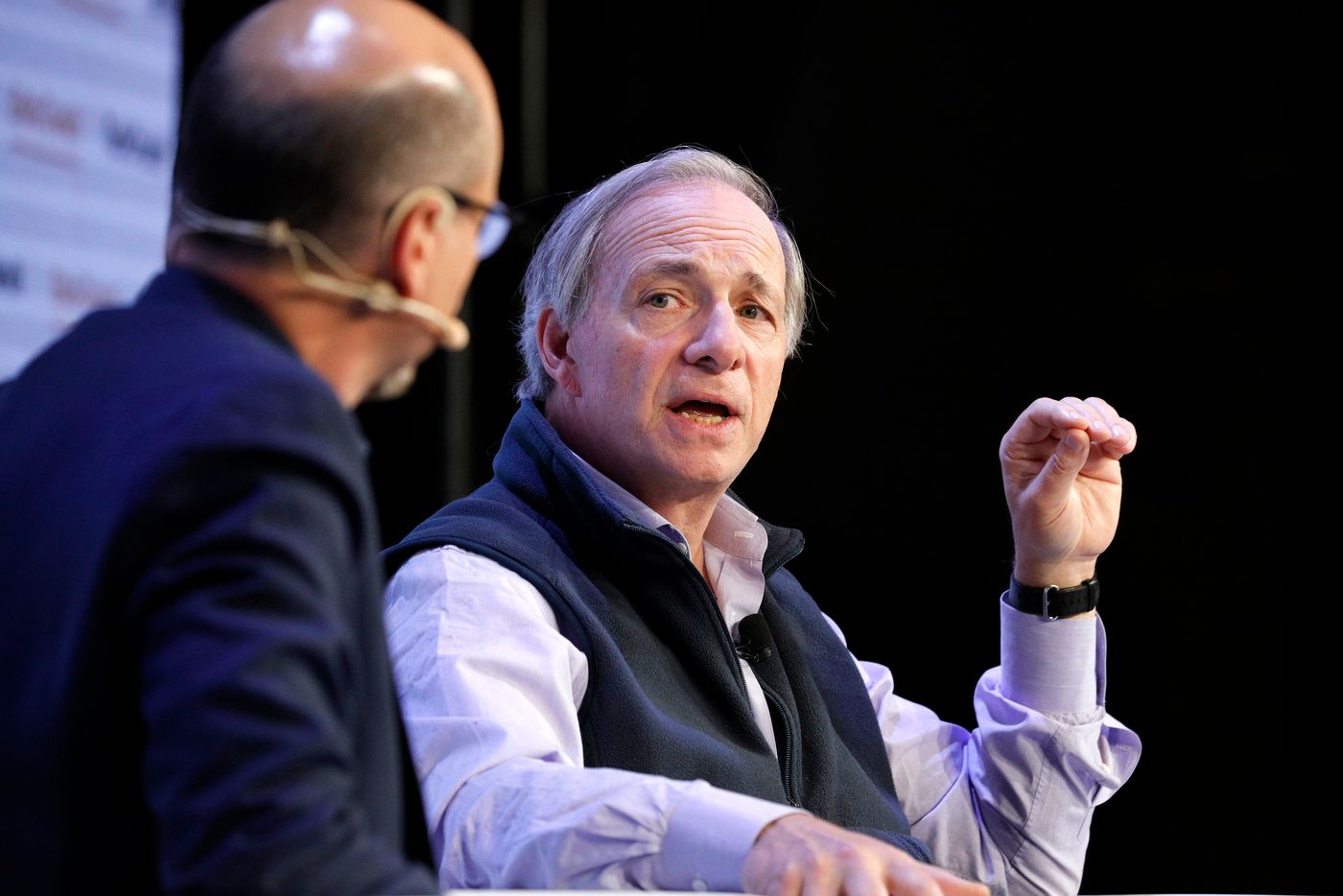If Bitcoin Is Successful, ‘They’ll Kill It’
Founder of world’s largest hedge fund weighs in on cryptocurrency.
“I think at the end of the day if it’s really successful, they’ll kill it. And they’ll try to kill it. And I think they will kill it because they have ways of killing it. But that doesn’t mean it doesn’t have a place—a value and so on.” – Ray Dalio
Ray Dalio, billionaire investor and founder of Bridgewater Associates, the world’s largest hedge fund, said that the more successful that Bitcoin becomes, the more likely that it will get neutralized by governments and regulators supporting traditional monetary systems.
In an interview with CNBC on Wednesday, Dalio reiterated comments that he has made in the past, repeating that governments have the power to undercut the growth of the nascent cryptocurrency market, including Bitcoin and Ether on the Ethereum blockchain, which may pose a threat to conventional finance and global central banks.
Dalio said that Bitcoin may not “have intrinsic value” but said that it could still be useful in a diversified portfolio. The hedge-fund manager said that he thinks it’s worth considering all the alternatives to cash and all the alternatives to some of the financial assets.
“I’m no expert on it … I think diversification matters,” he said. “Bitcoin has some merit,” he said.
“The real question is how much [does an investor] have in gold versus how much you have in Bitcoin,” he noted.
For his part, Dalio explained that he maintains “a certain amount of money in Bitcoin… it’s a small percentage of what I have in gold, which is a small percentage of what I have in my other assets.”
Dalio’s comments come as traditional markets are struggling to rise, with the Dow Jones Industrial Average, the S&P 500 index and the Nasdaq Composite aiming to break a recent downbeat trend in trading.
Dalio, a prominent figure in the world of finance, has a networth of US$20 billion, according to Forbes.
In the past, Dalio, founder of the world’s largest hedge-fund firm, Bridgewater Associates, has said that he’s “very bullish” about crypto as a digital-clearing mechanism, perhaps referring to decentralized finance, or DeFi.
 Copyright 2020, Dow Jones & Company, Inc. All Rights Reserved Worldwide. LEARN MORE
Copyright 2020, Dow Jones & Company, Inc. All Rights Reserved Worldwide. LEARN MORE
This stylish family home combines a classic palette and finishes with a flexible floorplan
Just 55 minutes from Sydney, make this your creative getaway located in the majestic Hawkesbury region.
Continued stagflation and cost of living pressures are causing couples to think twice about starting a family, new data has revealed, with long term impacts expected
Australia is in the midst of a ‘baby recession’ with preliminary estimates showing the number of births in 2023 fell by more than four percent to the lowest level since 2006, according to KPMG. The consultancy firm says this reflects the impact of cost-of-living pressures on the feasibility of younger Australians starting a family.
KPMG estimates that 289,100 babies were born in 2023. This compares to 300,684 babies in 2022 and 309,996 in 2021, according to the Australian Bureau of Statistics (ABS). KPMG urban economist Terry Rawnsley said weak economic growth often leads to a reduced number of births. In 2023, ABS data shows gross domestic product (GDP) fell to 1.5 percent. Despite the population growing by 2.5 percent in 2023, GDP on a per capita basis went into negative territory, down one percent over the 12 months.
“Birth rates provide insight into long-term population growth as well as the current confidence of Australian families,” said Mr Rawnsley. “We haven’t seen such a sharp drop in births in Australia since the period of economic stagflation in the 1970s, which coincided with the initial widespread adoption of the contraceptive pill.”
Mr Rawnsley said many Australian couples delayed starting a family while the pandemic played out in 2020. The number of births fell from 305,832 in 2019 to 294,369 in 2020. Then in 2021, strong employment and vast amounts of stimulus money, along with high household savings due to lockdowns, gave couples better financial means to have a baby. This led to a rebound in births.
However, the re-opening of the global economy in 2022 led to soaring inflation. By the start of 2023, the Australian consumer price index (CPI) had risen to its highest level since 1990 at 7.8 percent per annum. By that stage, the Reserve Bank had already commenced an aggressive rate-hiking strategy to fight inflation and had raised the cash rate every month between May and December 2022.
Five more rate hikes during 2023 put further pressure on couples with mortgages and put the brakes on family formation. “This combination of the pandemic and rapid economic changes explains the spike and subsequent sharp decline in birth rates we have observed over the past four years,” Mr Rawnsley said.
The impact of high costs of living on couples’ decision to have a baby is highlighted in births data for the capital cities. KPMG estimates there were 60,860 births in Sydney in 2023, down 8.6 percent from 2019. There were 56,270 births in Melbourne, down 7.3 percent. In Perth, there were 25,020 births, down 6 percent, while in Brisbane there were 30,250 births, down 4.3 percent. Canberra was the only capital city where there was no fall in the number of births in 2023 compared to 2019.
“CPI growth in Canberra has been slightly subdued compared to that in other major cities, and the economic outlook has remained strong,” Mr Rawnsley said. “This means families have not been hurting as much as those in other capital cities, and in turn, we’ve seen a stabilisation of births in the ACT.”
This stylish family home combines a classic palette and finishes with a flexible floorplan
Just 55 minutes from Sydney, make this your creative getaway located in the majestic Hawkesbury region.






















